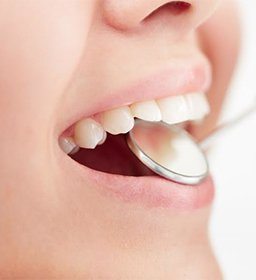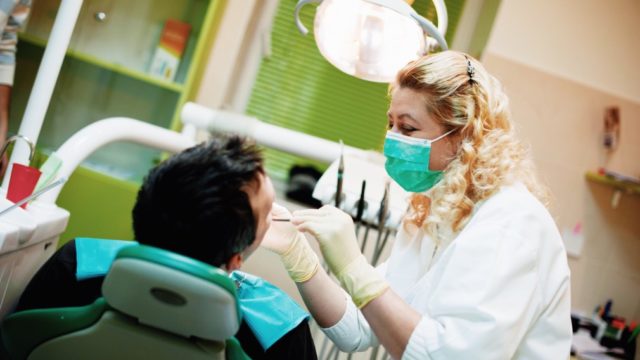Maintaining healthy gums is a crucial part of oral health. Common problems with gums include inflammation of the gums, bleeding gums and gum recession. All three of these conditions signal a greater oral health issue that if left unchecked can cause severe infection or even tooth loss.
What causes inflammation in the gums?
Swollen gums can be an early indicator of gum disease. Inflamed gums can cause serious discomfort and pain, particularly while eating and drinking. An early form of gum disease is known as gingivitis, which is characterized by swollen, red or tender gums that may bleed easily. Additional causes of inflammation in the gums can include tobacco use, poor nutrition, diabetes and certain medications.
The good news is that gingivitis can be reversed with a good dental hygiene routine of twice daily brushing and flossing, or by tackling underlying health conditions that aggravate inflammation in the soft tissues of the body.
What causes bleeding gums?
Healthy gums should not bleed during routine brushing and flossing. Gingivitis is a common cause of bleeding gums. Other causes of bleeding gums can include hormonal changes during pregnancy, bleeding disorders, ill-fitting dentures, leukemia and Vitamin K deficiencies.
It is important to treat bleeding gums caused by gingivitis before the infection develops into a more serious form of gum disease called periodontitis. Periodontitis can develop into a serious gum infection and cause gum recession.
What is gum recession?

Gum recession is an oral health condition where the gums pull back from the tooth surface, revealing the roots of the teeth. Periodontal disease is a major cause of gum recession. Other causes of receding gums include tobacco smoking, aggressive brushing, hardened plaque buildup, diabetes and HIV/AIDS.
Periodontal disease begins as gingivitis, a milder irritation of the gums. Periodontal disease, when left untreated, causes pockets to form between the gums and teeth where bacteria and plaque collect. Those with advanced stage periodontal disease may notice the teeth loosen, as the tissue that hold the root of the tooth in place erodes.
Professional intervention is needed to treat periodontal disease with scaling and root planning, a non-surgical treatment to remove plaque and tartar to reveal a smooth surface for the gums to reattach to the teeth. Infections in the gums are treated with antibiotics, antiseptic mouthwash, and topical antiseptic treatments.
In severe cases surgical techniques are required to reverse the damage caused by periodontal disease. Common surgical treatments include pocket reduction surgery to reduce the space between the gum and tooth, grafts to replace bone and tissues that were lost to periodontal disease, guided tissue regeneration to stimulate bone and tissue regrowth, and bone surgery to reshape craters left in the bone around a tooth.
How to maintain healthy gums
It is important to address any noticeable swelling, bleeding or recession of the gums as early as possible. Conditions that are left untreated require more aggressive treatment to resolve.
- Always follow a firm daily routine of brushing and flossing the teeth.
- Additionally, it is important to visit the dentist for twice-annual dental cleanings to remove plaque and tartar buildup around the gums.
- During dental visits is the time to tell your dentist if you have noticed any pain, inflammation, bleeding, recession, changes in how your teeth bite or if your teeth feel lose.
- Maintain a healthy diet rich Vitamin C and Vitamin K to strengthen the soft tissues of the body.



